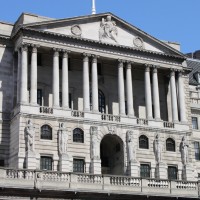
British banks’ resilience improved in H2, but the threats facing them had risen at a similar pace, the Bank says in its half-yearly Financial Stability Report, according to Reuters.
It urged them to use protective measures including gradual adoption of the Basel III capital requirements and new surcharges and winding-up arrangements for banks big enough to bring down the financial system.
“The United Kingdom is only partially insulated given the interconnectedness of European financial systems and the importance of their stability to global capital markets,” today’s report says.
The BoE recommends paying staff bonuses in share options or subordinated debt, not cash, which would boost capital and give staff a long-term interest in their banks’ health.
Low government bond yields in advanced economies lay at the heart of many of the risks to financial stability, the Bank says.
Banks should prepare for a sharp rise in global bond yields which could cause big falls in the price of a range of assets, as happened in 1994 after the recession at the start of the decade, as well as deteriorating credit quality, it says.
A rise in yields could reveal latent credit problems in households and firms, especially in the commercial property sector, that are currently only able to service their debt because of very low interest rates.
Low yields on government were pushing pension funds and insurers that are obliged to target nominal returns into riskier assets than they would normally invest in.
Property and government bond prices in some emerging economies had risen strongly, and the premium over safer debt that investors received for buying corporate junk bonds had fallen markedly.
“Pressure has been most acute in parts of Asia, where property prices have increased sharply,” the Bank says.
Another major area of concern was risk management at central counterparties, which act as intermediaries in securities transactions and were rapidly becoming systemically important.
A sharp drop in investor risk appetite and falls in real estate prices were seen as a less prominent risk than in June.
The BoE also said that banks’ funding position had improved. By the end of November banks had repaid £75bn of the £185bn funds which they had borrowed under the BoE’s Special Liquidity Scheme, which is due for full repayment in January 2012.
Other banks split with the BoE as to what they saw as the biggest threat to financial stability.
About 83% identified an economic downturn as a threat in a survey in October, up from 67% in May. Funding and liquidity problems and real estate price falls were also seen as rapidly growing problems.
By contrast only 36% of banks were worried about sovereign risk, down from 69% in May.















